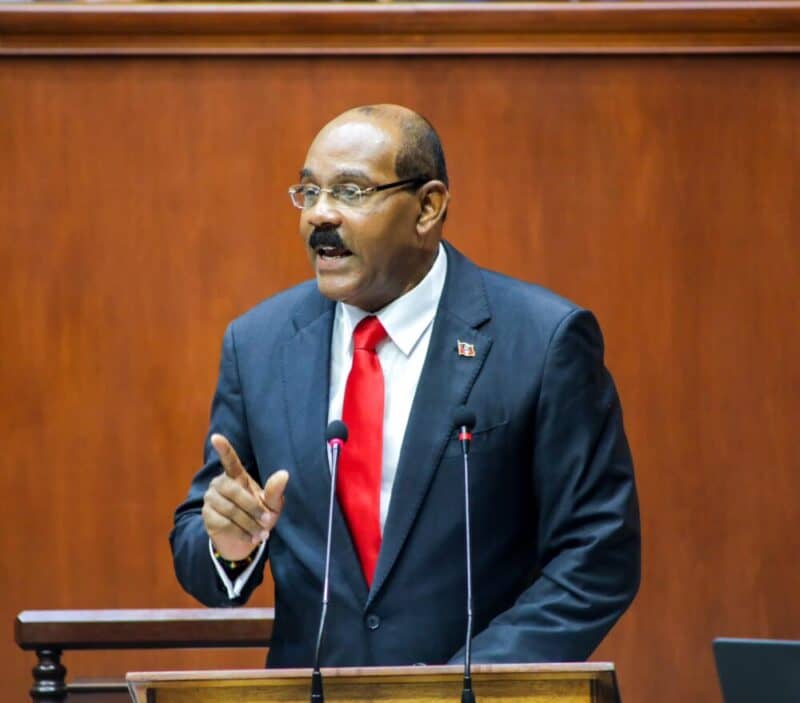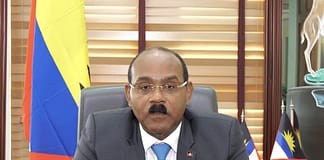
CLICK HERE TO JOIN OUR WHAT’S APP GROUP
Prime Minister Gaston Browne has addressed concerns raised by the World Bank, emphasizing the government’s commitment to economic and social reforms.
Speaking on the issue, the Prime Minister acknowledged the challenges highlighted by the World Bank, particularly regarding skills training and youth unemployment. He reaffirmed the government’s stance on strengthening vocational education to bridge the gap in the labor market.
“We need more trained masons, carpenters, plumbers, and electricians, but we have not produced enough. It is not because the facilities are lacking, but because there is a stigma attached to skills training,” the Prime Minister stated.
He also pointed to the role of schools and teachers in shaping students’ futures, noting that those who struggle academically are often sidelined rather than guided towards alternative career opportunities. This, he suggested, leaves many vulnerable to criminal activities due to a lack of support at home and within the education system.
“Teachers have to take some responsibility for youth delinquency. Those who need guidance in skills development are sometimes pushed aside instead of being supported. Without intervention, these young people may turn to crime,” he warned.
Prime Minister Gaston Browne further called for a collective effort from all stakeholders, including parents, teachers, and religious leaders, to play a more active role in guiding at-risk youth. He emphasized that community involvement is essential to fostering a disciplined and empathetic society.
“It takes a village to raise a child. Everyone must contribute to nation-building. Unfortunately, those who have direct contact with these children are failing in their responsibilities. When these youths become a problem to society, the blame is often placed on the government,” he added.

He also expressed concerns over the changing role of religious institutions, suggesting that church leaders have become more “transactional” and less engaged in youth outreach compared to previous generations.
To address these challenges, the government has introduced a “Second Chance Programme” aimed at offering young people additional opportunities to gain skills and reintegrate into society. The initiative seeks to provide support for those who may have been marginalized in the traditional education system.
“We must always give our young people a second or even a third chance. Stigmatizing and ostracizing them only deepens the problem. Our role as a society is to uplift and support them,” the Prime Minister concluded.
CLICK HERE TO JOIN OUR WHAT’S APP GROUP
CLICK HERE TO JOIN OUR WHAT’S APP GROUP
CLICK HERE TO JOIN OUR WHAT’S APP GROUP
CLICK HERE TO JOIN OUR WHAT’S APP GROUP
CLICK HERE TO JOIN OUR WHAT’S APP GROUP
CLICK HERE TO JOIN OUR WHAT’S APP GROUP
CLICK HERE TO JOIN OUR WHAT’S APP GROUP
CLICK HERE TO JOIN OUR WHAT’S APP GROUP
CLICK HERE TO JOIN OUR WHAT’S APP GROUP
CLICK HERE TO JOIN OUR WHAT’S APP GROUP
CLICK HERE TO JOIN OUR WHAT’S APP GROUP
Advertise with the mоѕt vіѕіtеd nеwѕ ѕіtе іn Antigua!
We offer fully customizable and flexible digital marketing packages.
Contact us at [email protected]

















Glad to see PM Browne addressing these concerns—investing in youth skills is crucial for the future.
will there be new programs, or just improvements to existing ones?
Hope this isn’t just a political statement—our young people need real training and real opportunities.
Good move by PM Browne. Without proper training, young people will struggle in the job market.
The youth need more than just education—they need real pathways to employment.
Nice to see the government responding to the World Bank, but let’s ensure it leads to real, lasting change.
They also need to address wages and working conditions for young professionals because they are really poor..
Comments are closed.